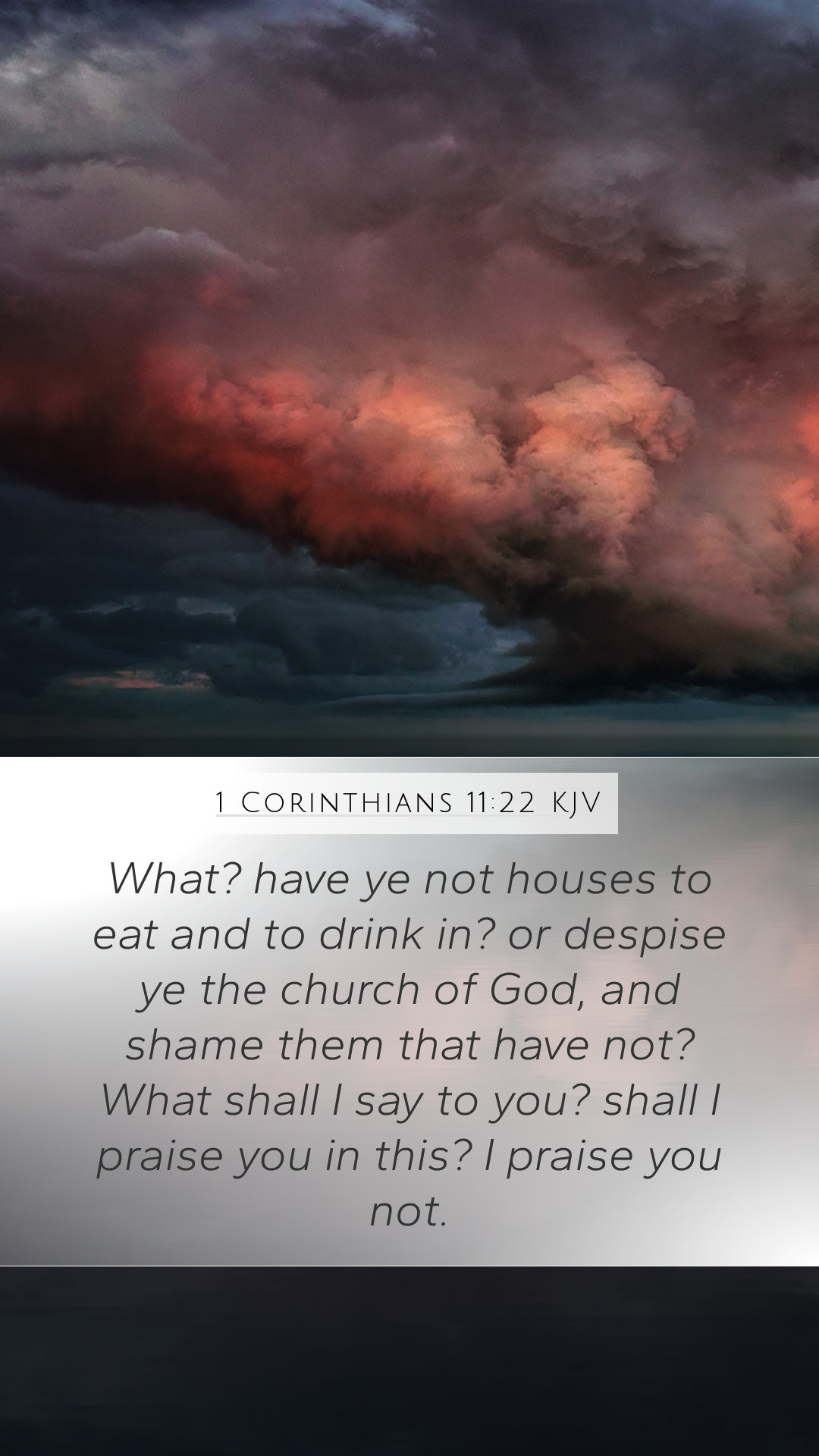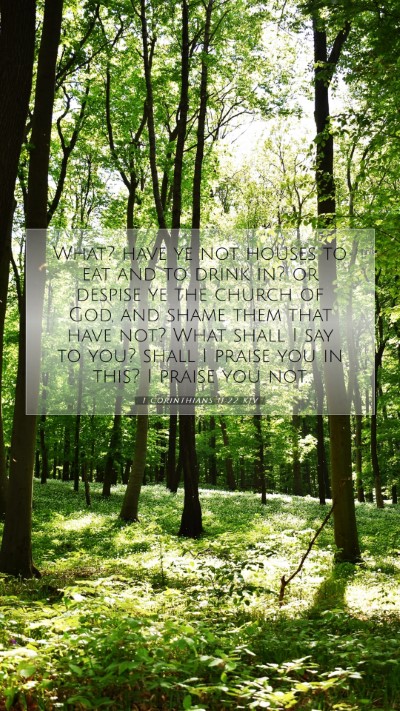Understanding 1 Corinthians 11:22: A Comprehensive Bible Verse Commentary
In this analysis, we delve into the meaning and significance of 1 Corinthians 11:22, exploring insights from renowned public domain commentaries such as those by Matthew Henry, Albert Barnes, and Adam Clarke. This verse forms part of a larger discourse on the Lord's Supper and the behavior expected within a Christian community during communal meals.
Verse Context
1 Corinthians 11:22 reads: "What? do ye not have houses to eat and to drink in? or despise ye the church of God, and shame them that have not? What shall I say to you? shall I praise you in this? I praise you not." This verse addresses misconduct during communal meals and highlights Paul’s concern for unity and proper conduct among believers.
Verse Analysis
Matthew Henry emphasizes that Paul’s question is rhetorical, aimed at pointing out the absurdity of their behavior. The Apostle criticizes the Corinthians for treating sacred gatherings with irreverence and causing divisions among them. According to Henry, the church should be a place of unity rather than conflict, and the Lord’s Supper should not be reduced to a spectacle of gluttony or drunkenness.
Albert Barnes elaborates on the cultural context by noting that the Corinthians' gatherings were meant for worship and fellowship but had devolved into shameful acts. He explains that to despise the church and belittle the needs of others constitutes a serious moral failing. His commentary stresses that the Lord’s Supper is an occasion for worship and reverence towards God, which should not be marred by selfishness or lack of consideration for fellow believers.
Adam Clarke discusses the implications of Paul’s rebuke. He asserts that the mocking attitude towards the poor and less fortunate was entirely contrary to the teachings of Christ. Clarke notes that communal aspects of the meal should foster love and mutual respect, rather than division and snobbery. His analysis brings out the importance of communal integrity and the necessity for believers to gather with a spirit of love and humility.
Group Insights on Social Issues
The verse highlights key themes relevant to social awareness within Christian communities. It is vital for congregations to address the socio-economic disparities that can manifest during shared meals. Matthew Henry suggests that the rich and the poor should come together in harmony, while Albert Barnes reinforces this by indicating that God's church does not discriminate based on social status. Adam Clarke supports this by stating that all believers should view each other as equal in Christ.
Application of the Verse
The teachings drawn from this verse can be applied in various practical ways within church settings:
- Promote inclusivity and avoid favoritism during communal gatherings.
- Encourage members to consider the needs of others before engaging in self-indulgent behaviors.
- Foster a spirit of unity and fellowship, reminiscent of the early church gatherings.
Cross-References
The themes and issues addressed in 1 Corinthians 11:22 can be further understood through several related scriptures:
- Acts 2:44-45 – Communal sharing of resources among believers.
- James 2:1-6 – Warning against favoritism and discrimination in the church.
- 1 John 3:17 – The duty of the believer to help those in need.
Conclusion
Overall, 1 Corinthians 11:22 serves as a vital reminder to Christians about the importance of unity, respect, and love within the church. By studying this verse, individuals can gain invaluable Bible study insights that not only enhance their Bible verse understanding but also guide them in their interactions and communal worship. A collective reflection on the lessons presented in this verse can facilitate a healthier and more harmonious church environment.


